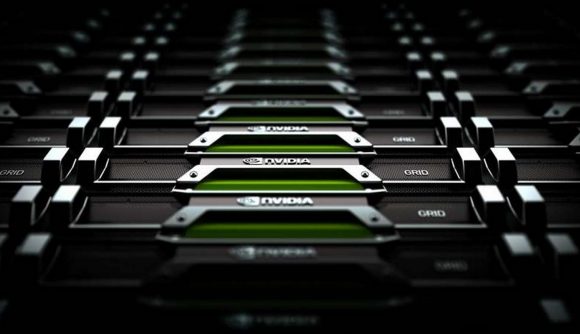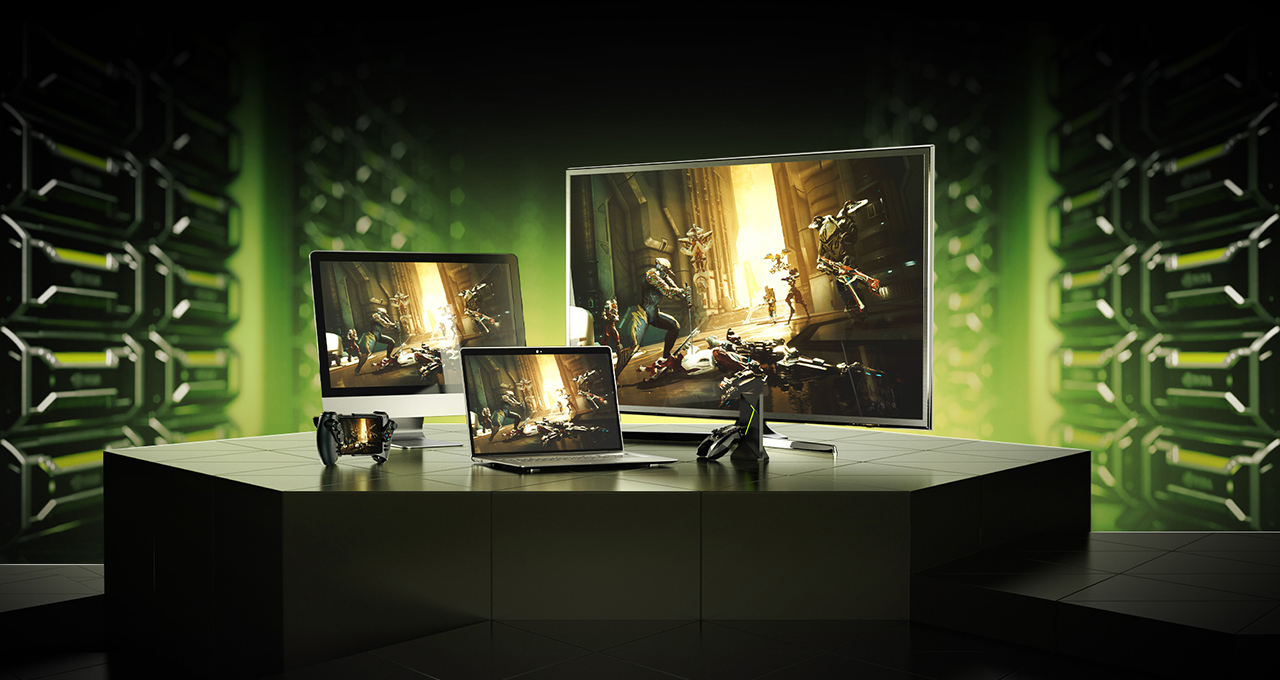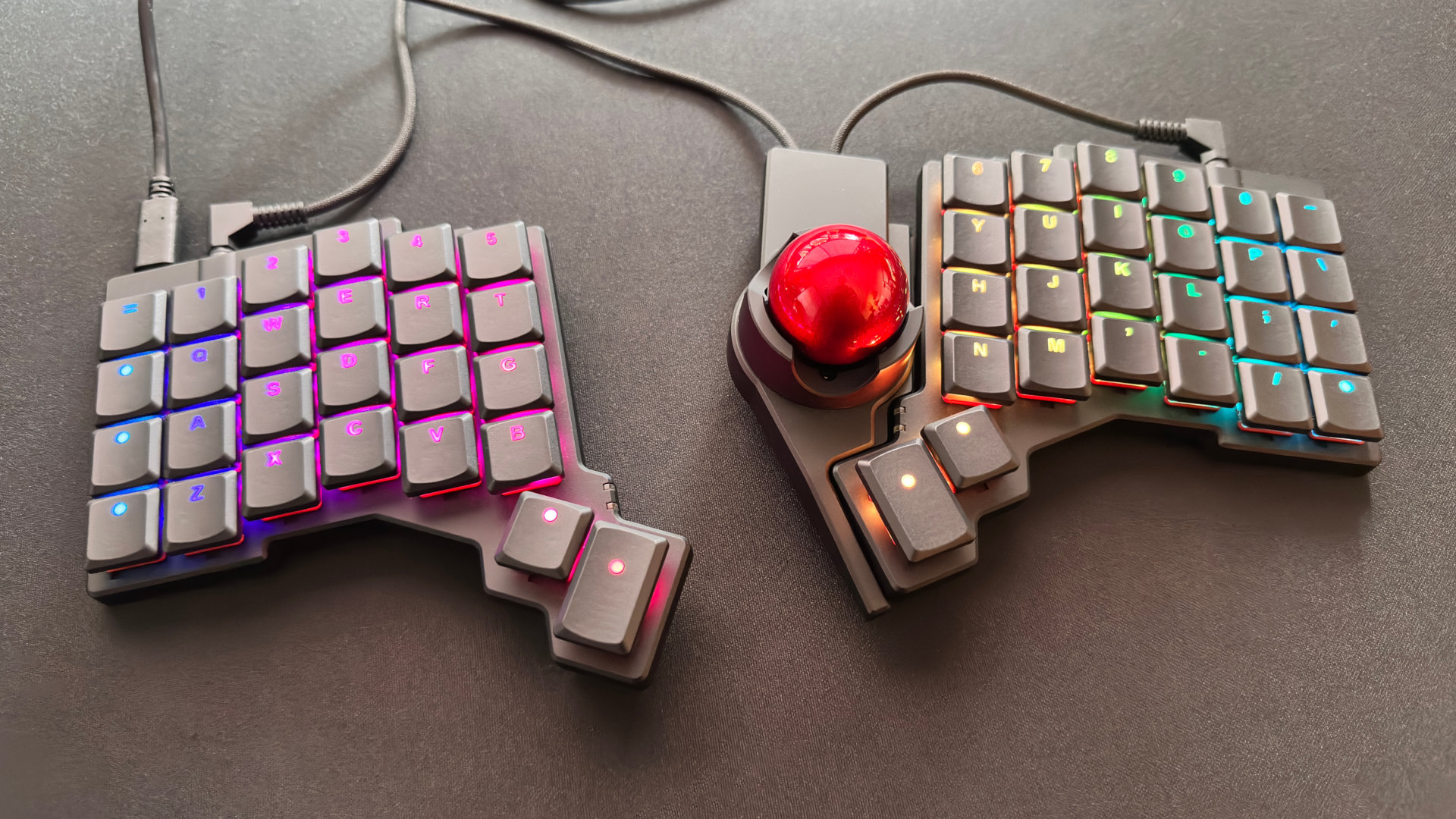The inherent exclusivity of cloud gaming will kill it for PC gamers
Think your multiple video streaming subscriptions are bad enough? Just wait until cloud gaming gets up-and-running.

If you're an Nvidia GeForce Now Founder's subscriber, it's likely you're nonplussed over the continued losses to the cloud gaming service's roster. Many notable videogames and publishers have dropped from the service since it launched on February 4, 2020—apparently those holding all the cards are "still figuring out their cloud strategies"—and if that isn't a bad omen of things to come, I don't know what is.
Why? Because Nvidia's service offers something akin to the PC gaming experience. It is (theoretically) open to all, it allows you to access the games you already own, and it is more or less a back to basics promise of a half-decent gaming PC in the cloud—it even offers RTX graphics for cheap. Without it, or those other services like it, the future of cloud gaming looks a lot more… exclusive.
With a PC-a-like platform already shot down, it's looking far less likely that cloud gaming will ever be able to offer PC gamers anything close to what we have already.
Nvidia was unlucky in its game streaming rollout. Just as the ball started rolling on its initially successful cloud gaming ambitions, and fresh out of beta, a couple of major publishers (Activision Blizzard, Bethesda Softworks, 2K Games) swiftly dropped out from the service, and even made quite a palaver out of it. It appears as though that sentiment only gained momentum from there. Further games have been pulled from the service since, and while many more have embraced it with open arms, there are some huge games notably missing from its cloud-compatible library. Nvidia's since adopted a less pro-active opt-in approach for developers and publishers on GeForce Now as a result.
So what is it that makes Nvidia's service so frowned upon by publishers? I'd have to guess that it's merely the sheer size, scale, and monetary worth of the potential 'platform'. No one batted an eyelid for the many cloud streaming services that came before, despite being much like Nvidia GeForce Now—those that allow a user to hook in their existing libraries and play the games they own across a range of digital storefronts on hardware they couldn't otherwise afford or access.
So you'd expect that it wouldn't matter whether you play your game on hardware you own—a trusty gaming PC—or one that's rented to you and served up out of a server rack. You bought the game, right? That's yours and you get to say how you play it.
Well, not so fast. Gaming licenses have never been straightforward. Do you own a game or a license to the game? Well, the answer is actually relatively simple: you own a license that allows you to use someone's software, as they intended. What that End User License Agreement (EULA) means for you, and what you're allowed to do and not allowed to do with it (such as modding), varies between platform and developer.
Therein lies the thorn in Nvidia's side, and the stipulation that gives ultimate control to the publisher. And it's only a microcosm of a wider issue—if cloud gaming inherently relies on publishers and developers to specifically allow access to the videogames we own a license to, then it's going to run into burgeoning costs, exclusivity, and a lack of interest from gamers with access to an already fairly simple solution that (mostly) bypasses these issues: a physical gaming PC.
Keep up to date with the most important stories and the best deals, as picked by the PC Gamer team.

A large part of that comes down to what constitutes a platform—how we define the term. You could argue that GeForce Now added layers of abstraction to the PC gaming experience, but you could also quite as easily argue that PC is the platform and Nvidia's merely extending its reach. I tend to side with the latter, because once you get towards naming what to call a slice of a server that is, by all metrics, a gaming PC in the cloud anything besides a 'gaming PC', things start to get really messy. Especially as it even runs the exact same software.
What is a gaming PC if not a sum of its parts all coming together to run a generally agreed upon set of software? Is my gaming PC really a gaming PC, or is it a miniature server? I can play games from my home computer streamed outside of my home network, so what constitutes a cloud server anyways? It's all being fed through some sort of cable or wireless connection. And we're all connected, like physically connected. Mankind's own subterranean root network. It's all just ones and zeros, man. Oh no, I'm feeling woozy....
Nvidia's GeForce Now was a test bed for an open cloud game streaming model, and it evidently thought it might work seeing as it never explicitly asked for permission for every game supported on GeForce Now to begin with. Sadly, its experiment has so-far fallen flat after some publishers disagreed with its approach. Maybe that was down to its slight ambiguity when it came to what degree it was optimising games for the platform. Nevertheless, with that the future of cloud gaming is looking more and more bleak with every game that's falling from the service's roster.
It's worth mentioning that some developers, such as Epic Games, wholeheartedly support Nvidia GeForce Now, but sadly a few bad apples spoil the bunch.
We're looking at a high possibility that publishers will want a cut of the streaming cash before allowing their games to exist on PC platforms in the cloud, despite having nothing to do with the hardware. And if that's to be signed off on by cloud hardware providers, those providers will want something in return. Now we're in for a world of exclusivity and business shenanigans—another impasse. If the library isn't there, or fractured across many gluttonous cloud services all vying for their piece of the videogame pie, PC gamers will probably tell them all to get stuffed, anyways.
Publishers have, and always will have, complete control over who gets to play their games, and who's to say that shouldn't fall into the hands of the game's creators and owners. But with a PC-a-like platform already shot down, it's looking far less likely that cloud gaming will ever be able to offer PC gamers anything close to what we have already: a (relatively) open ecosystem that's really only limited by the technical capability of your hardware, not where said hardware physically exists.

Jacob earned his first byline writing for his own tech blog, before graduating into breaking things professionally at PCGamesN. Now he's managing editor of the hardware team at PC Gamer, and you'll usually find him testing the latest components or building a gaming PC.

